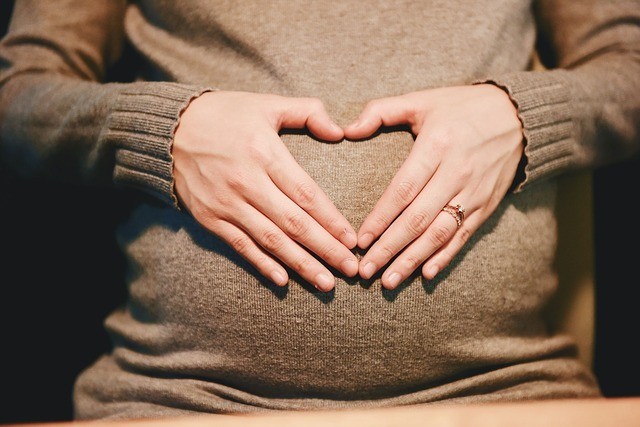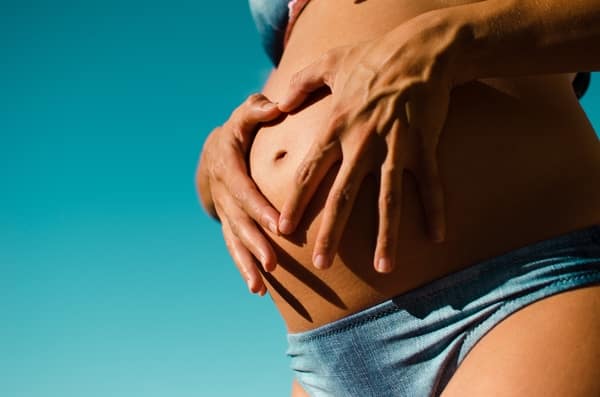Women get pregnant and carry little human beings in their womb for 9 months. The last trimester is pretty much the hardest of all – with your bulging baby bump and waning energy, it’s hard to do almost anything. If you’re 9 months pregnant with twins, the challenges will be as twice as hard as you are ending your third trimester.
Still, being pregnant with twins is a dream for many. But not everyone has been given a chance to have two babies at once. So, cherish the last moments of being pregnant but also rejoice the coming of your twins.
The road to motherhood has just started.
Third Trimester Pregnancy: 9 months Pregnant with Twins
The last month of your third trimester and your pregnancy is all about your child trying to grow bigger. By that, they are building fat layers and gaining in weight. During the 34th week, your babies’ lungs are fully developed.
But if you get into labor prematurely, you may be given some steroids. This is to help the babies breathe when they go out.
You should also note that twin and multiple pregnancies are shorter than singleton pregnancies. In most cases, women give birth around the 36th week. On an average, a newborn twin will weigh around 5 1/2 lbs. They are lighter than the average singleton baby who can weigh at an average of 7.5 lbs.
As the weeks go on and you’re near your due date, one of the twins will start going down into your pelvis. This will then clear up some space in your abdomen and will help you breathe a little better.
Basically, your twins are getting ready for their birth. Most of the downy hair that covers them as well as the waxy white substance all around their body will be gone. They will still continue taking in amniotic fluid, but it will soon come out of their body as their first poo.
Twin Pregnancy and the Braxton Hicks contractions
As early as 16 weeks pregnant with twins, you’ll be experiencing what is known as the Braxton Hicks contractions.
But what are they?
During your pregnancy, you might notice the muscles of your womb or your uterus is tightening. If you place your hands on your belly when it’s happening, you’ll notice that your bump has grown hard.
This is common and won’t probably cause you discomfort. Plus it also happens for at least a minute or even less. You’d likely encounter this once, maybe twice, in an hour or several times during the day.
However, Braxton Hicks contractions can happen more frequently and even cause you pain and discomfort during the 9th month of your pregnancy. Some experts believe that this is your body’s way of getting ready for labor as it keeps your muscle fibers toned. They also believe that the contractions help your cervix get ready for birth, too.
Difference Between Braxton Hicks Contractions and Labor
Braxton Hicks contractions can be pretty uncomfortable during the last months of your pregnancy. Sometimes, you’d even panic and think you’re going into labor.
But there are differences between Braxton Hicks and real labor. To help you stay calm and to help you know when you should be calling an ambulance, here are the differences between the two:
Braxton Hicks contractions may be:
- Are not that frequent and happen once, twice, or sometimes thrice in an hour, up to several times a day
- Don’t increase in intensity
- Unpredictable and don’t have a rhythm
- Often stops if or when you change activities such as sitting and then walking
- Mainly irregular
- Regular ones end every few minutes or so
- Don’t last long
Labor contractions:
- Increase in intensity
- More painful
- Noticeable as it becomes longer like the previous one
- More regular
- Happens frequently
If you have contractions every 10 minutes and accompanied by the following, call your midwife or an ambulance:
- Flu-like symptoms such as nausea and vomiting
- Pinkish watery discharge, or an increase in vaginal discharge
- Vaginal bleeding that could be heavy or light
- The urge to pee more often
- Period-like cramps with diarrhea
These may be signs that you’re going into premature labor or you’re ready to give birth. Your doctor or midwife will be able to tell and will proceed from there.
Getting Routine Check-up
During the third trimester, you’ll be getting some pre-natal check-ups more frequently than with a singleton pregnancy. You might be going to the doctor every week or even twice a week. This is to guarantee that you and your twin babies are in perfect health.
Your doctor will also examine your body as it prepares to go into labor and giving birth. Here are some of the tests you will be taking during the 6th to the 9th months:
- Blood and urine tests – You’ll take blood tests to check for possible anemia and your urine for protein and sugar or any other sign of infection.
- Non-stress – You’re more likely to undergo a non-stress test with a twin pregnancy. Your doctors will use a fetal monitor to check the heartbeat of the twins when they move. It also helps them get more information on contractions.
- Measurements – Your weight gain and blood pressure will be monitored as you visit your doctor.
- Ultrasound – This test is somewhat rare for a singleton pregnancy as they are likely to undergo this for at least two or three times during their entire pregnancy. However, with twins, you’ll have to be checked every once and a while to check on the babies movement and muscle tones.
The last month of your pregnancy is the hardest – especially when you take the labor pains into account. But you’ll also gain more weight as the babies grow and it can be difficult to move.
During this time, you’ll likely need the assistance of your family when doing things and even going to the doctor. At 9 months pregnant with twins and just days to count before going into labor, and then birth, it can be really exciting, stress aside.









 Store
Store